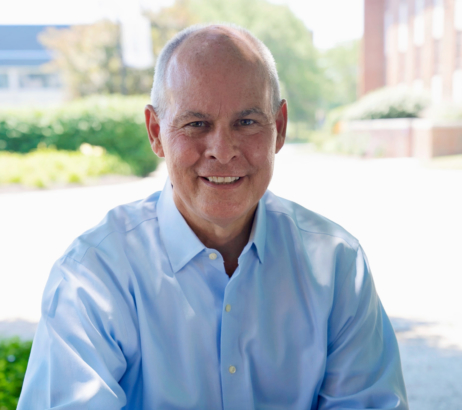Once again, America is dealing with the brutal police shooting of Jacob Blake, a young Black man in Kenosha, Wisconsin. Like many of you, I initially saw the shooting on social media, at first not wanting to watch for the fear of what I would see. But I knew that I had to watch, to give witness, as best I could, to yet another tragedy, yet another attack on a Black man. What makes this even more tragic is that Mr. Blake was shot in front of his three sons while they sat in the car. I can neither comprehend the damage that this has done to these young boys nor the pain they must bear now and throughout their lives.
After the killing of George Floyd earlier this year, I thought that our country was finally ready to confront the systemic racism that counts as one of our nation’s original sins. I began to feel some hope for the future, that we could address the racial issues that separate us. But my hope was taken from me this week while watching Mr. Blake being shot at point-blank range.
At a time when silence speaks volumes, I am unwilling to be silent.
As someone who has benefitted from a life of white privilege, if I feel such loss, how much more loss must be felt by Black people and other people of color?
This white privilege was magnified even further this week in Kenosha when a young, white man killed two people and injured another, then walked right past the police and went home to sleep in his bed. The dichotomy of this treatment by police was jarring, yet I understand that this is a normal experience for Black people.
I am now finally able to process the events of this week and search for some kernel of hope that we can nurture, grow and use to propel us to action that ensures the Capital University community is part of the effort to eradicate systemic racism.
I find that kernel of hope in you – our students, faculty, and staff. This hope comes from our commitment to equity, from our care for each other, and from our vision for creating a Capital that is a model for the rest of society in how to combat and eliminate systemic racism.
To matter, this hope must lead to true action and change.
Since initial conversations were held in early June, we have reached out to students, alumni, faculty, and staff to share open and honest dialog about their experiences with systemic racism where they live and work. And that includes their experiences – good and bad – at Capital.
As we begin the fall 2020 semester, I recommit to you my belief that Black Lives Matter.
There are several things we have committed to doing to promote a culture of racial equality, social justice, and community building within the Capital Family, including:
- Ralph Cochran, a 2011 Capital graduate, began as director of Diversity and Inclusion in early August.
- The President’s Cabinet has been revamped and includes three people of color now, including the director of Diversity and Inclusion, the Diversity Officer (Human Resources director), and the chair of the Faculty Budget and Planning Committee. There were no people of color on the Cabinet prior.
- The Affinity Group has been formed. They have met with me and the provost to voice concerns and to share thoughts around diversity and inclusion efforts.
- We are moving into the implementation phase of the Diversity and Inclusion Strategic Plan that has been developed over the last several years.
- The University will be revamping its hiring process to require that there will be qualified persons of color as a part of the final pool of candidates for open positions.
- We will implement mandatory implicit bias/diversity and inclusion training for all employees in the next couple of months.
As you can see, Capital University is committed to moving forward in a culture of racial equality, and we will continue with initiatives and actions that support our commitment.
I promise that we will lead with diversity and inclusion as part of the underpinning of the Lutheran values that guide the decisions we make and the goals we set. Our leadership team will ensure that this happens, and we will be engaging a broad representation of the campus community to determine how best to effect the changes that must be made.
I ask you to be a part of this necessary change. I encourage your feedback and your commitment to social justice on the Capital University campus. Feel free to share your thoughts with me at presidentsoffice@capital.edu.
Also, if you have been strongly impacted by the Jacob Blake tragedy or other incidents of systemic racism and need mental health services, there are several places where you can get help, including:
- Students – Capital’s Center for Health and Wellness at 614-236-6114 or chw@capital.edu;
- Faculty and staff – Employee Assistance Program through UNUM at 1-800-854-1446 or unum.com/lifebalance; and
- All – University Pastor Drew Tucker at dtucker@capital.edu.
Together, we will be leaders in the fight for human dignity and racial equality, and we will make change that matters. Together, we will succeed.


